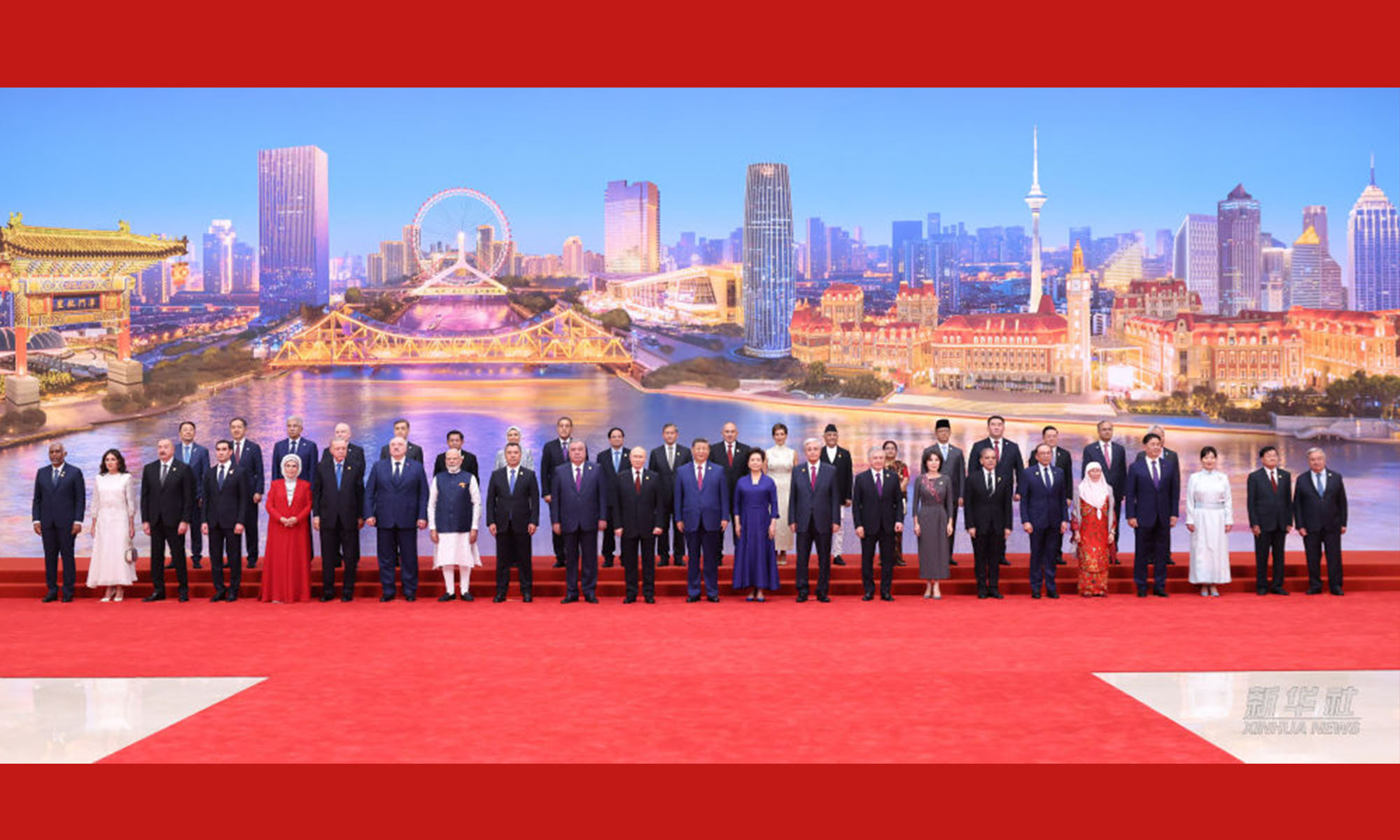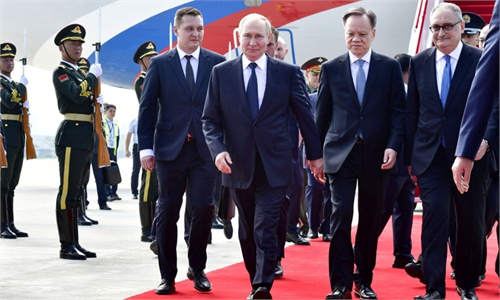Russian President Vladimir Putin, from left, Indian Prime Minister Narendra Modi and Chinese President Xi Jinping talk ahead of the Shanghai Cooperation Organization (SCO) summit at the Meijiang Convention and Exhibition Center in Tianjin, China, Monday, Sept. 1, 2025. (Suo Takekuma/Pool Photo via AP)
Xi and Putin rally Global South at Tianjin summit for a multipolar world order
Chinese President Xi Jinping and Russian President Vladimir Putin pressed their vision at a regional summit for a new global security and economic order that prioritises the “Global South”, in a direct challenge to the United States.Xi was hosting more than 20 leaders of non-Western countries at a two-day summit in the northern Chinese port city of Tianjin of the Shanghai Cooperation Organisation (SCO).
The SCO must “promote the democratisation of international relations and enhance representation of developing countries,” Xi said in a speech yesterday, adding that at a time of turbulence, “global governance has reached a new crossroads”.
“We must continue to take a clear stand against hegemonism and power politics, and practise true multilateralism,” he said in a veiled attack on the current US-dominated world order.
However, Xi did not set out any concrete policies in what he called his “Global Governance Initiative” – the latest in a series of policy frameworks from Beijing that analysts say are mainly geared to promoting China’s global leadership role.
Earlier, Xi pushed for more inclusive economic globalisation amid the upheaval caused by US President Donald Trump’s tariff policies, touting the SCO’s “mega-scale market” and vast economic opportunities in fields including energy and science.
Trump’s tariff war has disproportionately affected developing economies such as India, whose exports were hit with a 50% levy last week.
Putin, whose country has forged even closer economic and security ties with China amid the fallout from the Ukraine war, said the SCO had revived “genuine multilateralism”, with national currencies increasingly used in mutual settlements.
“This, in turn, lays the political and socio-economic groundwork for the formation of a new system of stability and security in Eurasia,” Putin said.
“This security system, unlike Euro-centric and Euro-Atlantic models, would genuinely consider the interests of a broad range of countries, be truly balanced, and would not allow one country to ensure its own security at the expense of others.”
Xi called for the creation of a new SCO development bank, in what would be a major step towards the bloc’s long-held aspiration of developing an alternative payment system or common currency that circumvents the US dollar.
Beijing will provide two billion yuan (RM1.18bil) of free aid to member states this year and a further 10 billion yuan (RM5.9bil) of loans to an SCO banking consortium, the Chinese leader said.
China will also build an artificial intelligence cooperation centre for SCO nations, which are also invited to participate in China’s lunar research station, Xi added.
Speaking on the sidelines of the meeting on Sunday, United Nations secretary-general Antonio Guterres said China played a “fundamental” role in upholding global multilateralism.
Others attending the Tianjin summit include Indian Prime Minister Narendra Modi and leaders from Central Asia, the Middle East, South Asia and South-East Asia.
The security-focused SCO, which began as a group of six Eurasian nations, has expanded to 10 permanent members and 16 dialogue and observer countries in recent years.
Modi was among the leaders from southern and central Asia and the Middle East attending the Tianjin summit.
Beijing has used the summit as an opportunity to mend ties with New Delhi.
Modi, visiting China for the first time in seven years, and Xi both agreed on Sunday that their countries are development partners, not rivals, and discussed ways to improve trade ties. — Reuter
Related posts:





.svg.webp)
.svg.webp)

